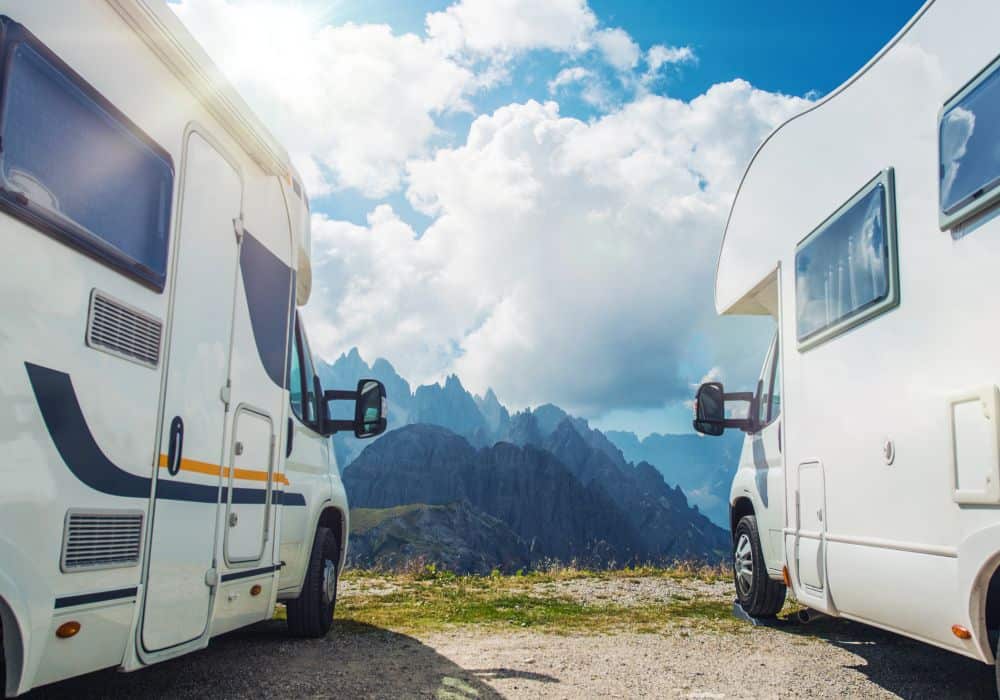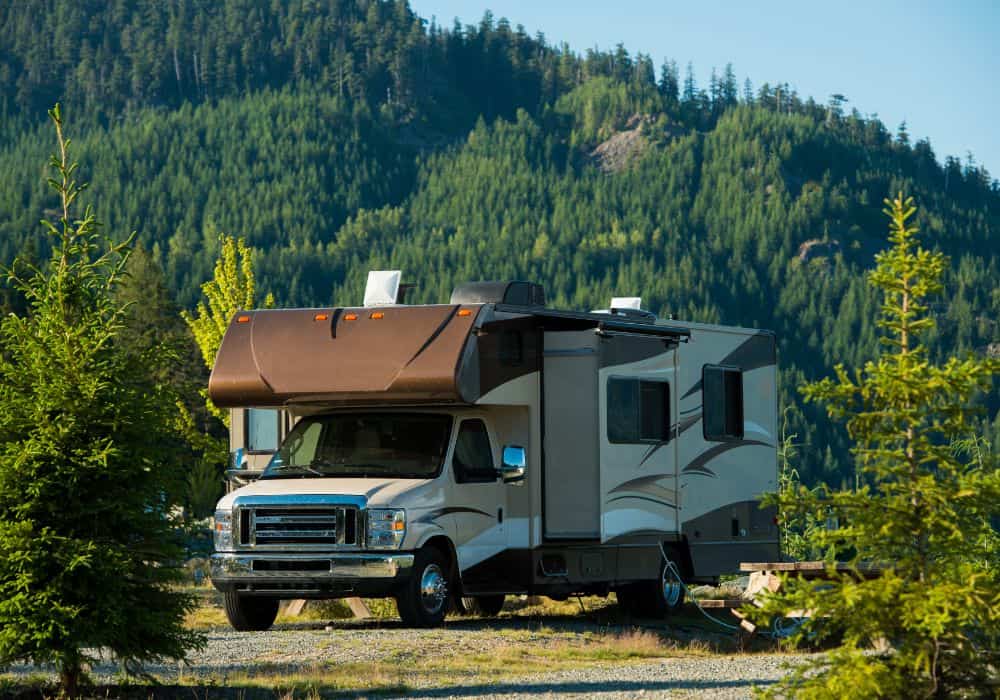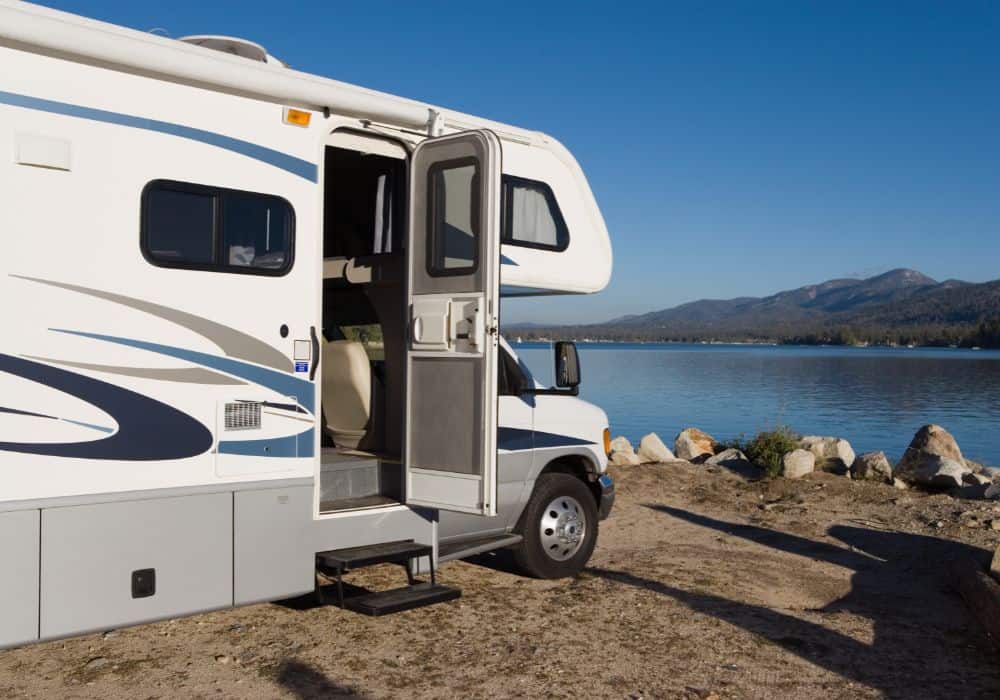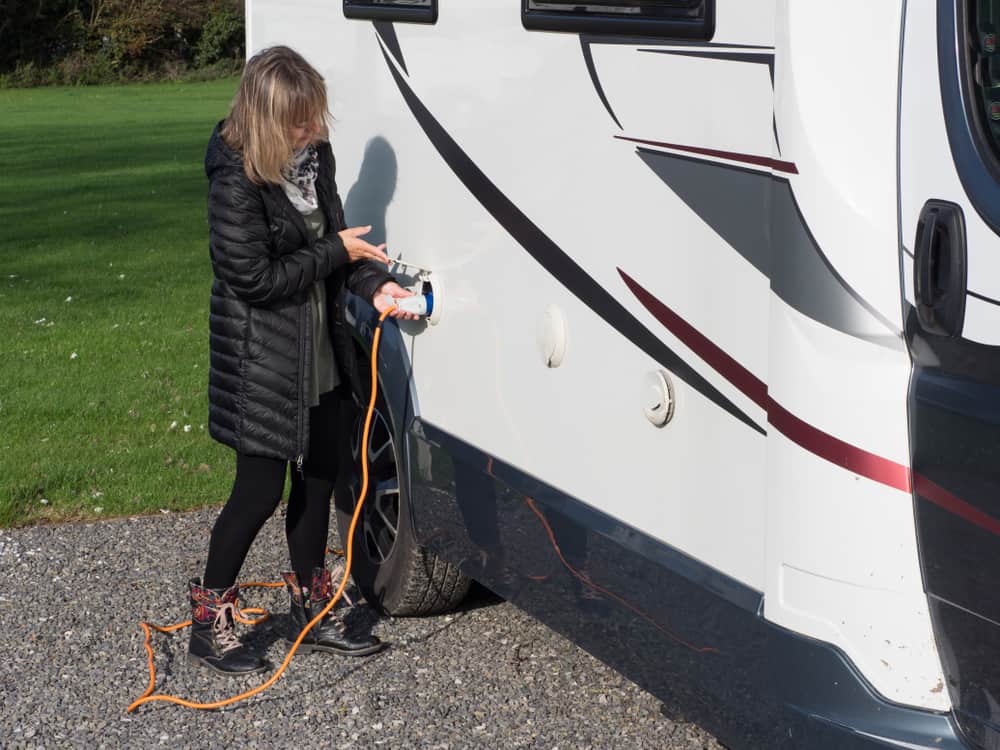If you are new to the world of RVs and are about to launch your first truck or your first getaway to nature with the family, surely questions come to your mind regarding how the batteries of your RV work.
You must have passed more than once by a campsite full of RVs connected to an electrical outlet, but until now you have not asked yourself how all this works.
Should I connect the vehicle to the current to charge the batteries or do I do it by starting the car? What batteries do RVs have and what is the best way to charge them? What happens if I run out of battery? If all these questions are going around your mind, this is the article for you.
But if you’re looking for a concrete answer to whether you can charge your RV battery while it’s plugged into an external power source, the answer is: Yes!
However, the subject is more complex than you imagine and you must keep some considerations in mind to make the best use of energy in your RV. Stay with us to find out.
Table of Contents
Knowing the batteries of your camper in depth
As a general rule, all RVs and camper vans come with a minimum of two batteries. The first is a starter battery, and you can find it on or near the engine.
The second auxiliary battery is used for the RV Electrical System. The position of where the auxiliary battery is located will depend on the model you buy or the modifications that its previous owners have made, but it is recommended that it also be near the engine.
You will have two batteries, one being the chassis battery, which is the same as the car battery, and one being the RV house battery, which will power the interior lights, air conditioning, and electrical appliances you have installed in your motorhome.
Understanding the power shore
Shore power was created in old times to power ships whenever they needed to turn off their main and auxiliary engines. With the passing of time, other vehicles have used shore power and now make use of it, planes, trains, or buses.
In most campsites, there is an electrical outlet that allows you to use shore power for your vehicle. The best example is thinking that the outlet is like the battery charger for our phone, while our RV is the phone. As long as it is connected the battery will be charged.
But we must bear in mind that both batteries will not be charged at the same time. The chassis battery that powers the car may or may not charge. It will depend on the kind of battery it is and the model you have bought. Some car batteries can be charged with shore power, but some can’t.
However, the battery that powers all your RV accessories will charge without a problem. But you must be careful not to overload your camper’s electrical system. Too much power in the AC system can blow a fuse or even completely burn out the electrical system if the power discharge is too strong.
To prevent this from happening there are surge protectors. Some RVs come with built-in guards, but most older models don’t, so it’s best to buy one. They are portable and very easy to use.
Surge protector
These protectors are in charge of seeing if the energy of the power shore is clean and stable. This tool ensures the protection of your electrical system if you are thinking of connecting your battery to an external power source such as the power shore.
What you should know is that when you use one of these devices, you will notice a power delay. The power delay time depends on the model you choose, but generally, it ranges from 30 seconds to 3 minutes. This is normal since it is the time that the protector needs to evaluate if the power that enters your RV is safe or not.
Ground power uses ac power from an electrical grid. The alternating current is not the same as the 12-volt current that your RV batteries run on. A built-in converter takes care of converting 120-Volt AC Power to 12-Volt DC Power.
Before connecting your battery to a power shore, you should know that there are levels of grounding.
- 20 amps are ideal for small RVs
- 30 amps are for medium trailers
- 50 amps are for all large trailers intended for long trips or heavy transport. Trailers with two air conditioning systems, for example, will need 50 amp power.
We encourage you to find out what your camper’s power needs are and check all of your plugs because they change depending on the amperage you demand. You must also be aware of this information if you want to travel extensively through several nations, as not all of them have the same electrical voltage.
Do RV batteries charge when grounded?

Let’s go back to the initial question of this article now that we understand better the power source to which we have to connect our battery.
The battery will charge when connected to the ground, but we still need to know more details about this.
Battery Types
There are two types of batteries in RVs. Lithium batteries and deep cycle batteries.
Lithium batteries are a great option if what you are looking for is not to give it frequent maintenance. They are also small and weigh very little. Most brands claim that their batteries can hold up to 5,000 charges before you need to replace them. The only drawback with lithium batteries is that they are more expensive to replace with new ones.
Deep cycle batteries are also known as lead-acid batteries. These batteries keep the current stable and constant, but they last much less than lithium batteries. They are cheaper but while the lithium ones yield about 5000 charges, the deep cycle ones only have approximately 400 charges.
How long should I charge my RV batteries?

The power inverter will choose how long it takes to charge. These elements will also influence how many times you have used the battery, depending on whether it is being charged for the first time or is nearing the end of its usable life.
Another determining factor will be the percentage of energy that the battery has accumulated. When you drop power to more than half capacity, it can take up to eight hours for the converters to fully charge your battery.
However, leaving the battery plugged in for a long time can also be dangerous. You need to disconnect the battery once it has reached 100% capacity to avoid any overcharging.
The electrolyte levels in the battery cells can be consumed by an overcharged battery, which has a direct impact on the battery’s performance and lifespan.
It is important to know that lead-acid batteries should not drop below 50% capacity. Any time you let the battery get more than half discharged, you are affecting the time and ability to hold a charge.
You must become an expert in managing balanced battery charging. Never overdo it and leave them charging overnight until the next day if not necessary and at the same time worry about charging the battery periodically so that it never has less than half charge.
Although you won’t experience this issue with lithium batteries, you shouldn’t let them run out either. It is advised that they keep the percentage over 30%.
To make your task easier, you should purchase an RV battery monitor. These devices measure the energy that enters and leaves your battery. It also gives you information about the state of charge and discharge of the battery.
You can find many options on the market, including some monitors that connect to Bluetooth so you can monitor your RV battery from your smartphone.
Other ways to charge the battery

In some RVs, the alternator charges both batteries, the one in the car chassis and the one that powers all RV functions.
There are two systems to make this possible. The bidirectional relay delay, also called BIRD, and the echo charger.
The BIRD system allows the RV battery to charge while the engine is running and vice versa. In these cases, the car battery can charge on a power shore.
Eco chargers redirect power from the motor to the RV battery once the car battery is fully charged.
And finally, there is the option to equip your RV with solar panels. This option is recommended for all those who will use travel trailers and will go on a long-term trip. That way they won’t have to worry about power sources during the route.
Conclusion
We hope that this article has answered your questions about whether or not your RV battery can be charged using a ground outlet and that you now have a clearer grasp of the gear you need to pack for an RV vacation and the best battery maintenance practices.
